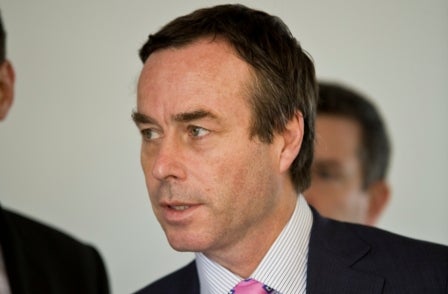
Financial Times editor Lionel Barber and former Independent editor Chris Blackhurst today warned that the newspaper and magazine industry has just a few months left to clear the impasse over the future of press regulation.
This is because the various phone-hacking related trials are due to start in the autumn and are likely to be accompanied by fresh revelations about press excesses.
In March all three political parties agreed a Royal Charter-backed system of regulation with the campaign group Hacked Off which would be enshrined in law.
This has been rejected by the vast majority of newspaper publishers and last month most of the press industry got behind a revised press regulation Royal Charter which has been submitted for approval to the Privy Council. It removes the statutory element and gives the industry more control.
The Parliament-backed plan has yet to go to the Privy Council.
The last meeting of the Privy Council was held last Thursday (13 June) chaired by Deputy Prime Minister Nick Clegg and attended by three other members of the Government. There is no mention of the press regulation in the published summary of the meeting.
Blackhurst told MPs today it was “extremely unfortunate” that Hacked Off were invited to late-night talks to finalise the Government’s Royal Charter for press regulation.
“I don’t know what was in the minds of Government officials to let that happen. It’s really just giving ammunition to their enemies.
“If they had not been there, we would not have had that level of hysteria. Now, we might be in a far better place.”
On the Royal Charter unveiled by publishers body Pressbof last month, he said: “The first I heard of it was when it was announced that morning. On the Royal Charter, we were kept up to speed all the way through. Since there was the row about Hacked Off being the room, there was silence.”
Barber said: “It feels at times the debate has become intensely polarised. There has been mild hysteria in some quarters.
“We are in no-man’s land and I am not sure whether we have a compass. We see some merit in the independent charter and we see some merits in the alternative.
“We have reached an impasse and I am not sure whether the public should feel good about that.”
Regional publishers have expressed strong concern about the Parliament-backed press regulation plan because it makes the creation of a low-cost libel arbitration service, which would be free for claimants, mandatory.
Blackhurst said: “The local press were not invited in to Downing Street when they should have been. They were not consulted enough. They feel very strongly about arbitration.
“I have a serious problem with the free arbitration service. That is potentially very damaging for the regional press.” But he added: “I don’t see why we couldn’t have a trial.”
Barber said the differences stopping a deal being made on press regulation are not insurmountable.
He said: “It requires an ability on all sides to give a bit” and suggested former BBC chairman Michael Grade would be a good person to chair talks aimed at clearing the logjam.
“He is name who has come in conversations with one or two editors…We need someone with some experience of journalism, some experience of business…who is respected by all sides.”
Both Blackhurst and Barber warned that MPs appeared to have given little consideration to the tough financial climate for newspapers.
Blackhurst – who is now group content director of the Evening Standard, Independent and London Live TV – said that his two newspaper titles currently contribute £200,000 a year to the cost of running the PCC.
His company estimates that the regulator proposed by the Government would cost at least double that to fund and he said that the extra would cost would almost certainly be taken from his existing editorial budget – meaning it could cost journalism jobs.
When asked how much longer the current stand-off over press regulation can continue, both Barber and Blackhurst agreed that the press has until mid-September to get a deal finalised – before the various hacking-related trials of journalists begin.
Hacked Off appeared to rule out any compromise with the press on behalf of the victims of media excesses which they represent.
A spokesman said: "There is no basis to compromise further. Gerry McCann already called the Leveson recommendations the minimum acceptable compromise for victims of press mistreatment. Concessions in the cross-party charter, and the use of a Royal Charter itself instead of legislation have moved the deal in the press's favour.
Email pged@pressgazette.co.uk to point out mistakes, provide story tips or send in a letter for publication on our "Letters Page" blog
